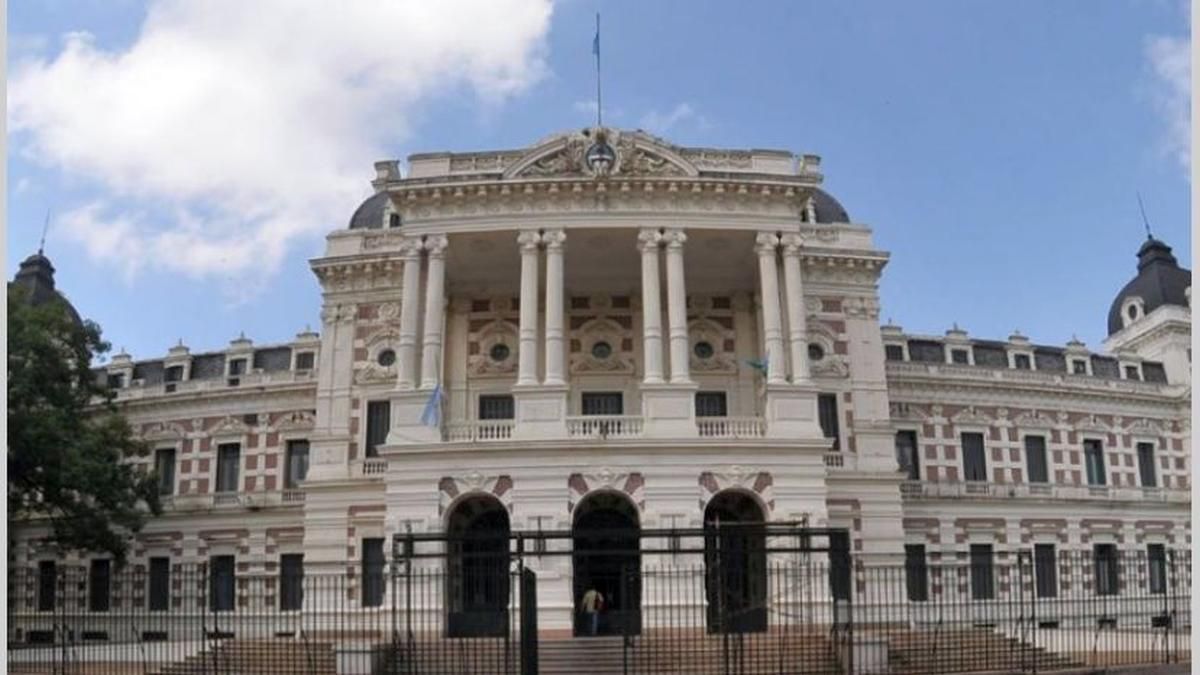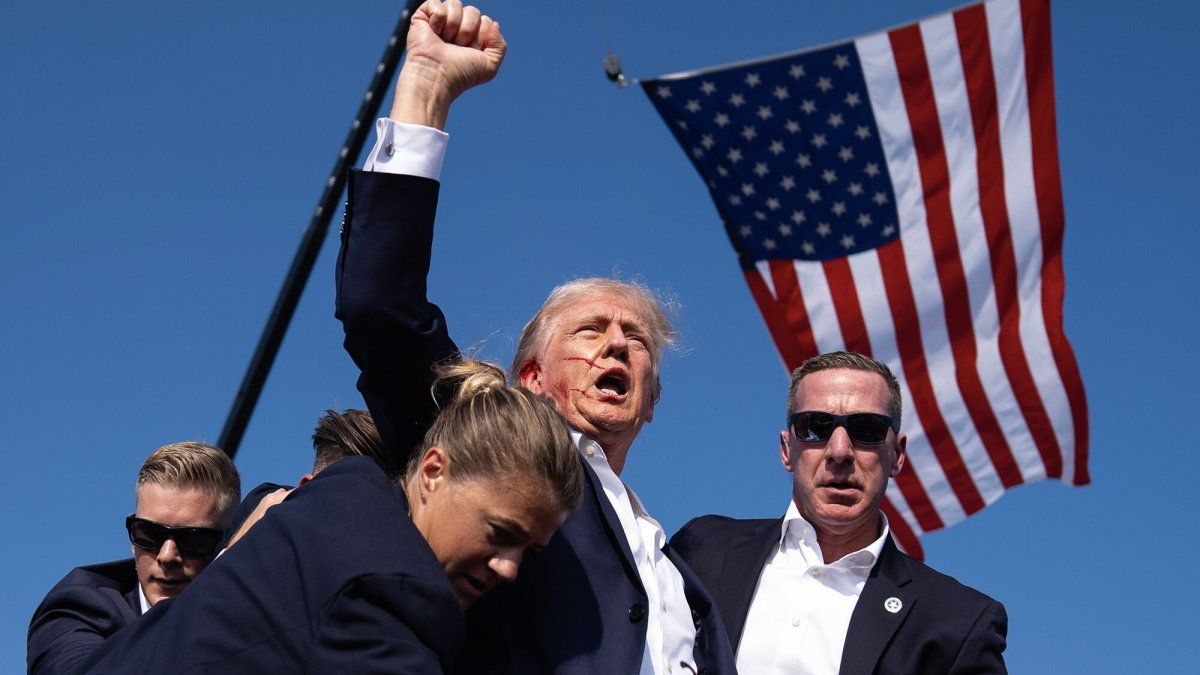The Buenos Aires Government Minister, Carlos Bianco, confirmed this Monday that only “in February or March” of next year will Governor Axel Kicillof make a definition regarding the electoral scheme in the province of Buenos Aires, of an eventual split and even of the possibility of eliminating or not the open, simultaneous and mandatory primaries (PASO) in that jurisdiction.
“Governor Kicillof has not publicly expressed a preference regarding the way in which the elections will be held next year in the province of Buenos Aires. He did not take a definition, he is evaluating all possible scenarios“, explained the official this Monday, when leading a press conference at the Government House, in La Plata, together with the Ministers of Security, Javier Alonso; of Health, Nicolás Kreplak; and Production, Science and Technological Innovation, Augusto Costa.
For Bianco, what the magistrate said “is in total harmony with what the governor said” and he detailed: “We had an electoral system that worked very well, that was not in debate, about which there were no complaints from any political force, which had been coming for a long time”.
“It was not a demand from any sector in Argentina to modify the electoral system. Since the return of democracy, elections were held with the traditional ballot, which allowed the alternation of the different political forces: Peronism, radicalism, Macrism won, Freedom Advances. The institutional mechanisms always worked,” he evaluated and completed: “The judge’s resolution ratifies what we have been saying, that there was no need to modify the electoral system, nor to introduce a new voting instrument, such as the single ballot. of paper (BUP). This has disrupted the electoral system in the province of Buenos Aires“.
Bianco outlined the four electoral possibilities raised by Ramos Padilla: simultaneity between the national and provincial elections on the same date with the same voting system; concurrent elections, that is, the national and provincial elections on the same date with different voting systems (BUP for the national elections and party ballot for the provincial elections); splitting: national and provincial elections on different dates; and elimination of primary elections.
In that sense, the official stated that “there is the possibility of doubling, with or without PASO. The presidential spokesperson, Manuel Adorni, said that in extraordinary sessions the project to eliminate the PASO was going to be discussed. Later it was difficult for them to establish that discussion about the case (of Senator Edgardo) Kueider. Now it is rumored that they will call extraordinary elections in February to eliminate the PASO or that they will do it in ordinary elections in March”, and he questioned: “We are going to be in February and March discussing what the electoral system will be like that will have to be implemented four or five months later”.
He maintained that “obviously, we will have to wait until February or March to decide whether there will be a PASO or not,” he added that “in addition, in the province we have our PASO established by law, which must be carried out on the same day that the nationals are held. But if the national PASO falls, the provincial ones do not fall. In any case, there will be a discussion in the Legislature about whether it is advisable to maintain the primaries. “That’s the big mess they made with the electoral system.”
“We agree with Judge Ramos Padilla that Today, entering the election year, there are no definitions taken because of the unconsulted modifications made by the national government and voted by the Congress of the nation.. Kicillof is evaluating all possible scenarios and they are all bad. “We are going to do what is best for the people of Buenos Aires, to ensure a transparent, participatory election without logistical inconveniences.”said.
The budget
Last Friday, the governor sought to approve the 2025 Budget and Tax Law projects, as well as the authorization to take on debt for 1.1 billion dollars with minimal changes, a position that was met with resistance both in some sectors of the ruling party and in the opposition. One of the main obstacles was the refusal to authorize the debt and the mayors’ demands to include funds that were not provided for in the original text further complicated the negotiations.
The communal leaders demanded a fund of 400 billion pesos, a figure that the provincial government considered unviable, offering 162 billion at most. Likewise, the Executive rejected creating a security fund of 200 billion, arguing that investments were recently made in patrol cars and motorcycles. These tensions led to alternative proposals from the mayors, such as increasing the municipal contribution by 1%, but none of them prospered and the session fell.
However, Minister Bianco today He blamed the opposition to Peronism and demanded that he support the legislative package that was stuck in the Chamber of Deputies.
“This is not a budget for adjustment, but rather for expansion. The project foresees an investment for public works, purchase of patrol cars, ambulances and promotion of production. Our officials, the head of ARBA, Cristian Girard, and the Minister of Economy, Pablo López, have explained it. There is no debate regarding the content with the opposition but a clear political discussion“said Bianco and highlighted that although the national government “is not interested in having a budget and prefers to extend it to have more discretion in the management of funds, Kicillof does need it.”
He explained that “with the indebtedness we will pay the external debt that we inherited and from the previous government and that we restructured” and added: “The government needs these elements to consider having a normal, reasonable and calm management.”. We ask the opposition to vote for it. The requests that the mayors make to us about sewers, patrol cars and public works are tied to that. Without a budget, it will be very difficult to have all that.”
Buenos Aires Legislature.jpg
The Buenos Aires Legislature will have a hot session this Friday, with the Budget at the center of the debate.
“The resources for next year’s public works depend on the approval of the Tax Law. We ask the opposition for collaboration so that the governor has the budget in the conditions in which it was presented. It is not a budget for adjustment, but for the protection of the people of Buenos Aires. Let’s hope that on the 27th we can have that basic tool,” he continued and said that the Executive Branch “is always willing to discuss, but “It is one thing to make modifications that improve the project and another is to want to completely change the budget and include funds that the province does not have.”.
There are sessions scheduled for this Friday in both legislative chambers and the outcome of the negotiation remains uncertain. Quite a few leave open the possibility that the discussion extends beyond this week.
Source: Ambito




